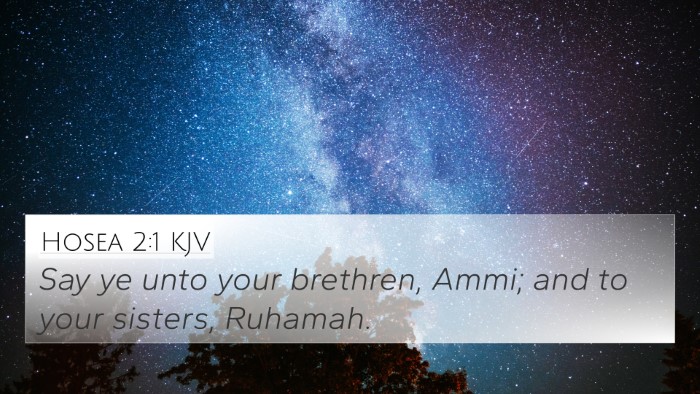Understanding Isaiah 54:6
Isaiah 54:6: "For the LORD hath called thee as a woman forsaken and grieved in spirit, and a wife of youth, when thou wast refused, saith thy God."
Overview of Isaiah 54:6
This verse is a profound message of comfort and hope to the people of Israel, depicting God's restoration and love for His people who have experienced loss and abandonment. The imagery used resonates deeply with personal and communal struggles, signifying that even in times of great despair, God has not forgotten His covenant people.
Commentary Insights
-
Matthew Henry:
Henry emphasizes the warmth of God's invitation and His merciful nature. The term "forsaken" indicates a profound sense of loss, but God's declaration reveals His enduring commitment and the intention to restore joy and dignity. The metaphor of a forsaken woman underscores divine compassion and the promise of renewal.
-
Albert Barnes:
Barnes notes the context of Israel's exile and the metaphor of a wife who has been rejected. He highlights that this verse reflects God's understanding of the emotional and spiritual affliction faced by His people. The reference to a "grieved spirit" is a recognition of these feelings, and God's calling offers a divine remedy to their sorrow.
-
Adam Clarke:
Clarke elaborates on the themes of restoration and reconciliation in this verse. He points out that despite feeling abandoned, God’s call is an affirmation of His unwavering love and intention to embrace His people once more. This operation of grace is a critical element showcased in the relationship between God and Israel, promising healing and comfort.
Thematic Connections
The verse encapsulates themes prevalent throughout the Bible, including:
- Redemption and Restoration: A recurring narrative in both Old and New Testaments where God redeems His people despite their grievances.
- Divine Comfort: The motif of God’s comfort in times of sorrow is a rich theme explored in various scriptures.
- Faithfulness of God: Despite human failings, God remains faithful to His promises and His people.
Cross-References for Isaiah 54:6
Here are several Bible verses that relate to the themes found in Isaiah 54:6:
- Jeremiah 31:20: "Is Ephraim my dear son? is he a pleasant child? for since I spake against him, I do earnestly remember him still: therefore my bowels are troubled for him; I will surely have mercy upon him, saith the Lord." – This reflects God's compassion for His people.
- Hosea 2:14-15: "Therefore, behold, I will allure her, and bring her into the wilderness, and speak comfortably unto her." – A promise of restoration and comfort akin to that in Isaiah.
- Matthew 11:28-30: “Come unto me, all ye that labour and are heavy laden, and I will give you rest.” – New Testament assurance of comfort and relief.
- Luke 15:20: "And he arose, and came to his father. But when he was yet a great way off, his father saw him, and had compassion, and ran, and fell on his neck, and kissed him." – Demonstrates the father's longing to restore relationship, mirroring God's love.
- 2 Corinthians 1:3-4: "Blessed be God, even the Father of our Lord Jesus Christ, the father of mercies, and the God of all comfort; who comforteth us in all our tribulation." – Affirmation of God as the source of comfort.
- Isaiah 61:1: "The Spirit of the Lord God is upon me; because the Lord hath anointed me to preach good tidings unto the meek; he hath sent me to bind up the brokenhearted…" – Proclamation of healing and comfort.
- Romans 8:31: "What shall we then say to these things? If God be for us, who can be against us?" – Emphasizing God's continual support and presence.
Understanding Through Cross-Referencing
The connections between these verses highlight the interwoven nature of Scripture, offering insights that deepen our understanding of God’s character and His unwavering promise to restore and comfort His people. By engaging in cross-referencing Biblical texts, we can uncover profound theological themes and relational dynamics that underpin our faith.
Conclusion
Isaiah 54:6 serves as a powerful reminder of God’s redemptive love and His desire to comfort those who feel forsaken. By reflecting on this verse and its connections with other Scriptures, believers are encouraged to find hope and assurance in God’s promises, thus foster a richer understanding of His relationship with humanity.













